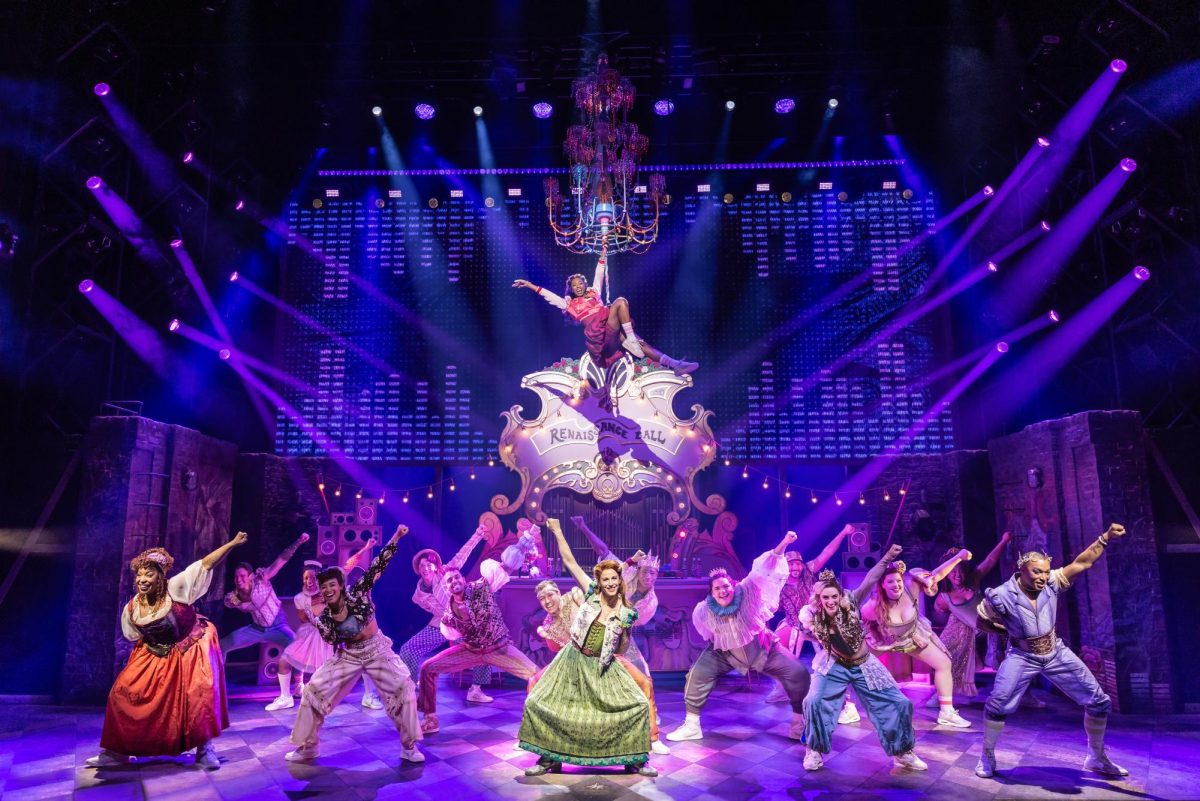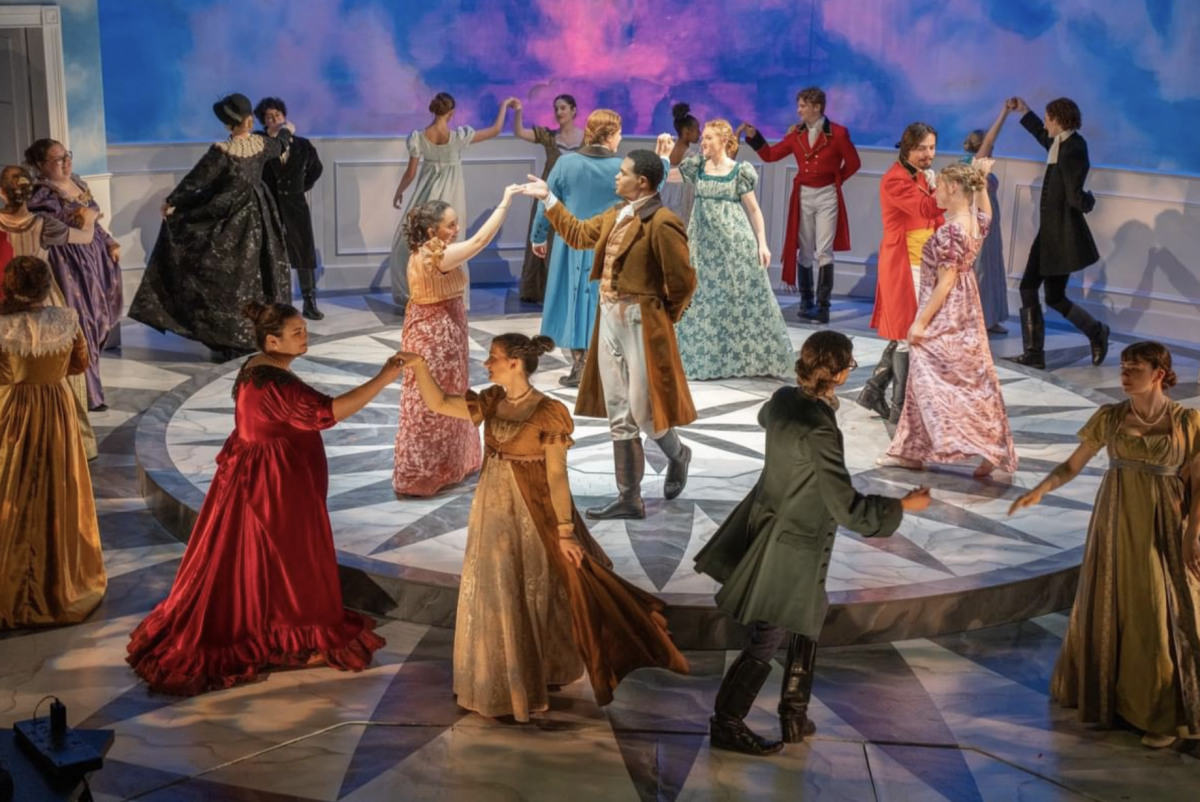Full disclosure: I don't like cartoons. Even as a child, I had a particular aversion to them. This was not the result of some sort of traumatic upbringing or pseudo-intellectual child-rearing scheme on the part of my parents. I just never really embraced the medium.
Even at a young age, I was bumping up against the Ray Gustini Wall of Ignorance: I fundamentally could not accept any of the principles put forth by cartoons aimed at children: I could not accept that ducks and rabbits could talk, let alone be friends. I could not accept that it is possible to run 50 feet off of a cliff without falling down, only to plummet to earth when you have the bright idea of actually checking where you are standing. I could not accept that wildlife would break out into Broadway-style production numbers at the drop of a hat.
I'm not an excessively literal person, but these things always bugged me and prevented me from ever fully enjoying cartoons. Another problem was that they always seemed too simple for me: even as a small child, I needed complexity and intrigue. Cartoons just felt a bit too linear. The formula was always the same, whether it was a Disney feature-length film, a Tex Avery short or an episode of "Scooby-Doo." Disney would always have the plucky young hero (or heroine) who loses a parent and is forced to fend for him/herself. Avery would never let Elmer Fudd kill Bugs. And the Mystery Machine would always break down in a weird location menaced by a mean old real-estate developer in a plastic mask. You could set your watch.
Growing up, my cartoons were old movies from the '40s and '50s that my dad had pirated off pay cable. I devoured Charlie Chan movies, old film noir, westerns and Abbott and Costello adventures. These were the flights-of-fancy that stimulated my imagination: I had no time for cartoons.
As a kid, my free time was spent running around my backyard with my dad, pretending we were Butch and Sundance. We lived in Washington D.C., less than two miles from the National Mall on a street that was never free from traffic and congestion, but that backyard was a Shangri-La for us. When we were back there, we could be in the Old West, Argentina or wherever the hell else we wanted to take our heroes. Bill Goldman may never have envisioned a scenario where Butch and Sundance, along with a talking parrot, found themselves battling flesh-eating robots on Mars, but my dad and I did. These were the greatest heroes in movie history and I could take them anywhere I wanted to: why would I want to trade them in for a group of stoners in an old van?
As I grew up, of course, I was able to better appreciate the impressive production values behind cartoons, and I've also realized that some of my dad's old bootlegs are probably just as unrealistic and clichéd as say, a mouse beating the tar out of an animated cat. Still, I have never fully been able to embrace the medium.
It is because I am not a big fan of animated movies that I did not particularly care for "Wallace and Gromit: Curse of the Were-Rabbit." Before you all start clogging up my inbox, let me just say that I know the movie uses claymation, and therefore is not "animated." Still, that's just splitting hairs. Since there are no human actors, the movie is not, in my opinion, "real." And, if it's not real, it therefore must be animated.
Anyway, the titular duo (created by Nick Park) has cleaned up at the Academy Awards over the last 15 years, winning three Oscars for Best Short Film. At fifteen minutes, this duo is crisp, sharp and funny. Wallace (voiced by Peter Sallis) is a cheese-loving inventor and Gromit is his mute, consistently exasperated dog. Everybody is talking about what a great comedic tandem they are, but personally, I just didn't see it. They're okay, but they lack the manic energy and tit-for-tat repartee that makes great duos. Too often, it feels as if the character of Wallace has to shoulder the entire comedic burden.
I also wonder about the wisdom of Dreamworks giving the duo its own feature-length film. Was there really that much of a demand for a Wallace and Gromit movie? I know that they have their dedicated group of fans, but I am not sure whom this movie is going to appeal to. It certainly has a cheeky charm and some nice visuals, but it may be a little too dry and a little too British to really connect with an audience.
There are some funny moments, but we have to work a little too hard to get to them. Much of the humor is lurking around the edges of the frame. There is nothing wrong with being subtle, but too often it feels like the movie is coasting on audience goodwill. It is impossible not to find Wallace and Gromit endearing and the movie uses these feelings to compensate for many slow spots.
You remember those movies Jack Lemmon and Walter Matthau made in their later years where they were so charming together that nobody really wanted to mention that the product was substandard? This is what "Wallace and Gromit" reminded me of. That's not a good thing.
The fact is that the primary audience for Wallace and Gromit (children) will not be reading this review and will not care what I think about this movie. Movies like "Wallace and Gromit" are like Jerry Bruckheimer movies: they are review-proof and people will flock to them regardless of what critics say.
Will kids like it? Yes, I think so. It's a little slow at times, but it's a pleasant enough time-filler. Older viewers who are not already in love with the two main characters are likely to be disappointed. It doesn't have the broad scope of "Beauty and the Beast," the heart of "Finding Nemo" or the magic and mystery of "The Polar Express" (by far the most underrated animated film of the past decade). It's an OK movie, but not a lot more. In a fall season full of great movies, it is not enough to be merely decent: you need to stand out. Frankly, "Wallace and Gromit" does not.
Grade: C







